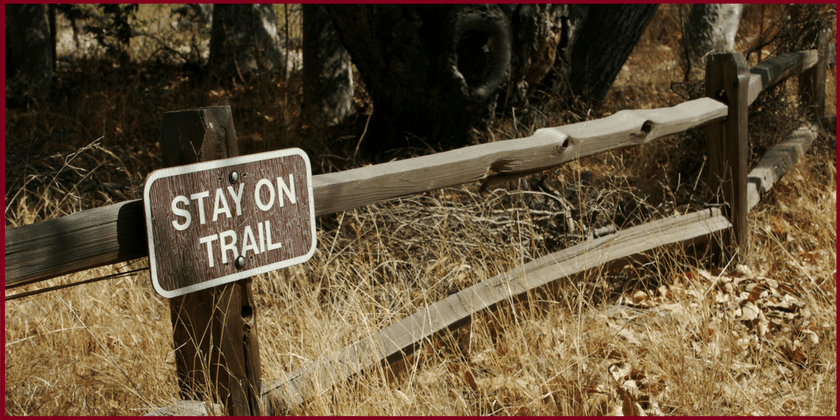I have started writing this post four times. Each time what I have to offer seems inadequate in the face of the grief and pain that I am seeing coming from the US. Each time I start and end up in different places. I am reluctant to blog about the US election as I don’t want to be ‘cashing in’ on something that has been so traumatic for so many. I also feel a little wary of commenting on something that from NZ seems in many ways to be beyond our understanding. However it is an enormously influential event for the world, and for Christianity so I don’t want to ignore it. I have decided the best way to reflect on the US election is to ask what lessons are in it for us in NZ, particularly as we approach our election next year.

It feels like there was a lot of issues bubbling away quietly hidden in the US and the election has been a catalyst that brought them to light. I think it would benefit us to consider our situation and wonder what is going on that is hidden that we need to be paying more attention to. The US election has shown the amount of polarisation that has occurred, it would benefit us to consider the polarisation that we can also see in NZ. One dividing line that the election has demonstrated is between generations.
We are seeing a clear generational divide in the church.
In the US election we saw (not just for church goers) substantially different voting patterns between those under 29 (who were more likely to vote for Clinton) and those over 65 (who were more likely to vote for Trump). Even voting behaviour was influenced by age with early indications being that more people over 65 voted than those under 29.
The public involvement of US evangelicalism in the election and the way that has played out in the US church and media has meant that people are disassociating themselves from evangelicalism and leaving evangelical churches. My impression is that those that are disassociating from Evangelicalism in the US are mostly from the generation that we would call ‘millenials” (people born between early ‘80s and late ’90s). There are many reasons why they are leaving, but the election has been the last straw for many of them. I suspect that this election has damaged evangelicalism beyond repair and we will see it move into quite a different future.
It is good for us in NZ to consider our generational gaps and divides, as I believe we also suffer from an increasing polarisation between generations in the NZ church. I see an increasing ideological, spiritual, ethical and theological divide between millennials and baby boomers (those born between 1946-1964). I have been talking about the gap between generations for about 15 years now, but I don’t think the church is engaging well with this issue.
Have a look around you in church on Sunday. How many people under 30 can you see? (for me last week it was 1) How engaged are they?
This completely tears my heart but as a church community in NZ we are failing our younger generations.
The faith of our older generations is too often presented in a pre-packaged, pre digested format that fails to contextualise well to those living in the post-modern digital age. I still see this over and over, even just last Sunday when we had a visiting speaker. Baby boomers seem to be saying over and over again, stay on the path that we forged. However their path doesn’t work for millennials, who want to create their own path. This is creating an increasing divide that is preventing good communication between the generations. Unfortunately baby boomers are still holding on to power in the church, and this makes it difficult for millennials to find a strong voice. I must acknowledge that there are many baby boomers who want to understand, however they seem unable to move beyond their pre-existing assumptions and worldview to really engage well with the new ways of thinking. They seem to be unwilling to have their theology challenged or questioned, which shuts down good dialogue.

So the younger people are leaving, especially those with the ability to think critically and ask questions. I come across them often, in small pockets away from the institutional church.There is a depth to their faith that would surprise those in the church who often say they have left because of a lack of discipleship. It is just that their faith looks a bit different and there isn’t room for it in the existing church structures. They are drifting around, unable to find a church that looks like home. Some of them are floating around the edges of mainstream churches as they know they need the people of God to encourage their faith, but they are not fully engaged. Some carry too much grief and pain from their experience of church to fully engage again.
I am not entirely sure (being a bit older myself) but I suspect that what they are looking for is a group of Jesus followers who can be companions on their journey. A journey that involves giving them the tools to engage well with the biblical text, to walk with the Holy Spirit’s empowering, and engage both of those well with society around them. All in ways that bring the Kingdom of God to earth on a journey of discovery that can cope with each new thing that their changing world throws up. Mostly I suspect that are searching for people who can help them learn how to have deep authentic relationships, and they are looking to be taught tools and systems that can help them form their own theology.
But where are the leaders?
I am not quite sure why, but no one seems to be stepping up to lead this group of millennials who are drifting on the fringes of the church. There seems to be a lack of leaders who can step up and say “lets start something new”. “Lets start meeting together and see what happens”. Leaders who can equip and support them to make their own path through the world in which they live. Leaders who can see and understand the depth of their faith, can see the opportunities to live kingdom values in their everyday lives, who can sweep them up and love them and create a gathering of the people of God that feels like home for them.
To move forward the church needs to acknowledge the generational divide, and to seek ways to create genuine discussion and where both sides can be safely challenged.
People born since 1980 I’d love to hear your thoughts. Are you engaged in the church? Why or why not? How would you like church to be? What are your experiences of the generational divide?
Wow! This sums it up so beautifully! The paragraph that begins with ‘So the younger people are leaving’ is the best thing I have read in ages.
I’ve left the church because as a polyamorous woman, who is a strong ally of those in the LGBTQ community, who plans to (as a single person) become a parent by sperm donor, there is no place for me in the Church. I don’t feel safe there anymore. And my faith didn’t ‘go away’. It’s deeper than it’s ever been, it just looks really different, and there’s not place for it. Not in the baby-boomer controlled church of ‘this is the way we do things’ – my way doesn’t fit. It seems like to engage in church now, for me, would look like constantly trying to justify my position, and I don’t want to waste my energy on that, I want to use it on loving people, caring for those in need, seeing justice lived out, and making the world a better place to be.
I’d love to see the Church become somewhere I felt safe again, somewhere I wouldn’t be embarrassed to bring my partners along to, or transgender or non-binary friends, or gay friends, or anyone else I know who doesn’t quite fit into what society sees as acceptable. Because Jesus saw us all as acceptable, so I’m left feeling baffled as to why the majority of the Church seems to see things so differently from that.
LikeLike
Thanks for your comments, I do still hope that in the future there will be somewhere that you can call home, that will be safe and welcoming but include the authentic relationships that keep your faith growing.
LikeLiked by 1 person
This has really resonated with me and many of the conversations I have been having with others recently!!! I’m a “millennial” (born 91) and it hit the nail on the head. I’m still somewhat optimistic but have recently left a church I was in for 7 years after church politics and it was heading in a direction that almost seemed Apostolic and beyond its Anglican Charismatic roots. So many of my peers have been burnt out after throwing themselves into their local church and hitting a brick wall when they suggested new ways of building the kingdom or doing community or wanted to wrestle well with big questions about faith or wanted to question privilege and power and inequality. That or as the only late teen/twenty somethings around they have been relied on to run the youth and other programmes in their “home” church until they hit burn out or had to deal with a mental health crisis alone because no-one was giving them discipleship or giving them support. Why do we have so many “youth” programmes in our churches but are unable to think imaginatively about what it is like to walk with twenty-somethings other than “find a home group, if you are lucky”?
It’s also really frustrating when we actually desperately WANT “A journey that involves giving them the tools to engage well with the biblical text, to walk with the Holy Spirit’s empowering, and engage both of those well with society around them”. We want to re-discover the contemplative and liturgical traditions! We want to serve others in the church! We want to engage well with Scripture! We want to follow the Spirit into our communities and fight injustice and create beauty and use our minds in the public sphere! We want our churches to be truly diverse! But it seems like we have to choose between A) Hyper Pentecostalism in huge churches with other people our age but which is not particularly reflective or biblical and lacks grounded, real and raw community, B) An american style conservatism/evangelicalism that doesn’t engage well with culture, or C) a tiny local church where we are the only ones below the age of 30 and are seen as too difficult.
LikeLiked by 2 people
Hi Anna, thanks for your comments I am glad that I said things that resonated, with your experience. I am from Gen X so I desperately want to help, and I want to highlight these issues but I need lots of help to understand millennials. I am still baffled abut why when I meet so many people who are unhappy with the three types of church options that you mention that there isn’t another type emerging! Perhaps the answer will become clearer as I keep investigating and pondering, and then we can do something about it.
LikeLiked by 1 person